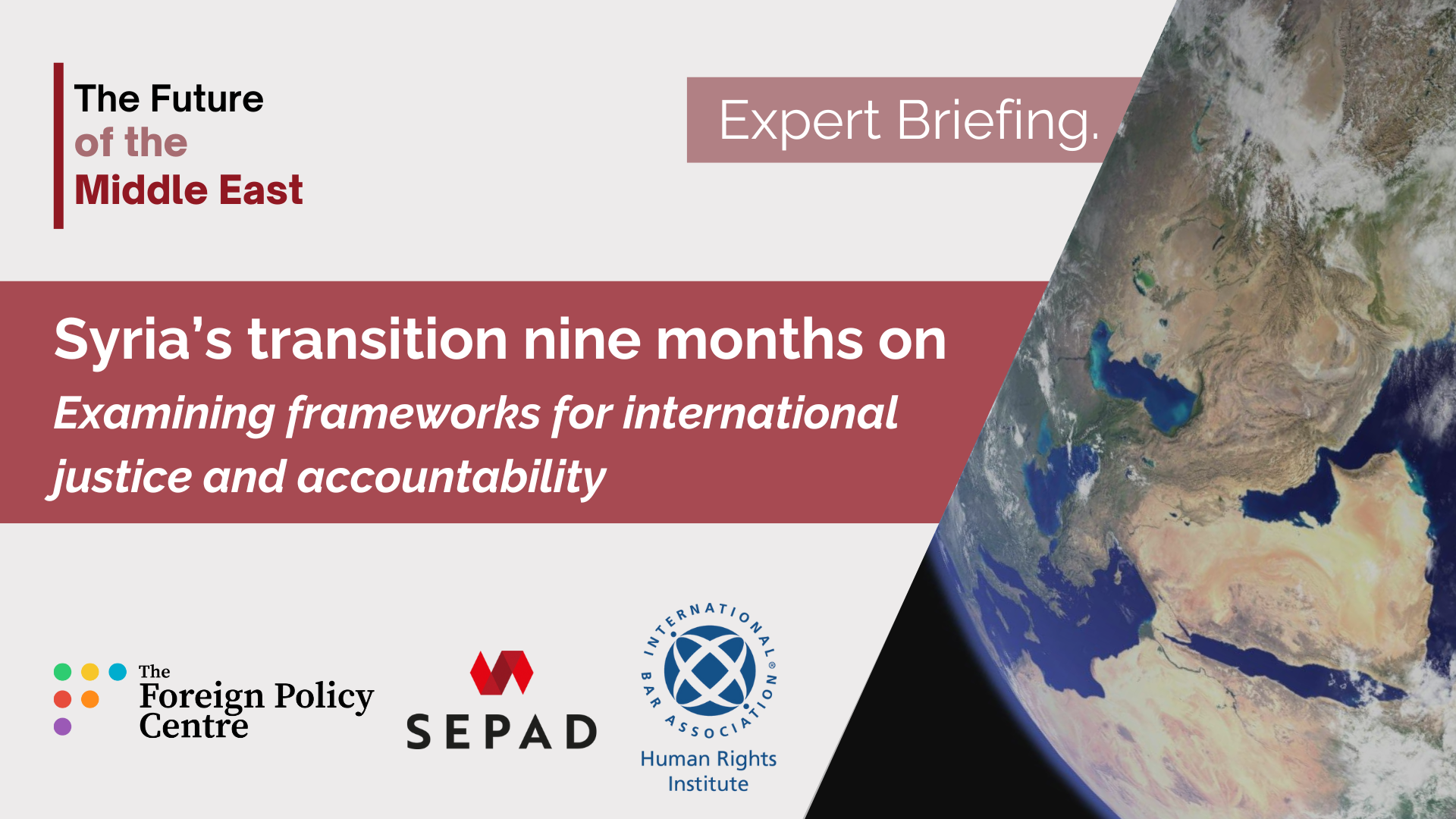On 9th September 2025, the Foreign Policy Centre (FPC), the International Bar Association’s Human Rights Institute (IBAHRI) and the University of Lancaster’s Sectarianism, Proxies and Desectarianisation project (SEPAD) co-hosted a high-level expert roundtable exploring Syria’s transition following the fall of the Assad regime, and the future of justice and accountability in the country.
The event was chaired by Mark Stephens CBE, IBAHRI Co-Chair, and brought together an expert panel including legal and policy experts, academics and civil society leaders: Yumen Hallaq, Senior Researcher at the Syrian Network for Human Rights; Sana Kikhia, Executive Director of the Syrian Legal Development Programme (SLDP); Dr Maria Kastrinou, Senior Lecturer in Anthropology at Brunel, University of London; Alan Haji, Lead for Case Building at the Syria Justice and Accountability Centre (SJAC); Mariana Karkoutly, Co-Founder and Board Member of Huquqyat; and Professor Simon Mabon, Chair in International Politics at Lancaster University and Director of the SEPAD project.
The roundtable provided an opportunity to assess the state of Syria’s political and legal transition nine months after the fall of Bashar al-Assad. Since the takeover by opposition forces in December 2024, led by Hayat Tahrir al-Sham, Syria has been governed by a transitional government under President Ahmed al-Sharaa, operating under a five-year constitutional declaration framework. While the international community has cautiously welcomed these changes and initial commitments to reform, major questions remain about the durability of the transition, the prospects for justice and reconciliation, and the appropriate role for international actors in supporting this process.
In charting a way forward for Syria, justice and accountability must be pursued through mechanisms that foster equal citizenship, political rights and freedoms, and collective trust, rather than reproduce the political processes of division that have fuelled sectarian and gendered violence. Domestic actors, civil society organisations, survivors, and victim’s families should be at the forefront of any accountability, legal or institutional reform. The international community can repeat calls and support processes that recognise the suffering of all victims, ensure accountability for the gravest of crimes, and foster genuine reconciliation and respect for the rule of law. Transitional justice processes must be coupled with long-term initiatives and dialogue to ensure that accountability and guarantees of non-reoccurrence of crimes become a foundation for sustainable truth, justice, and reconciliation. By embedding justice within a broader framework of social healing and inclusive governance, Syria can lay the groundwork for lasting peace in which accountability strengthens unity and helps prevent future cycles of violence.
To explore key themes and insights from the parliamentary roundtable discussion — including legal reform, institutional fragility, humanitarian conditions, and international engagement — you can download the full briefing here.


